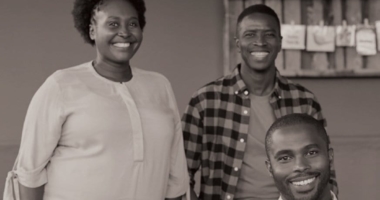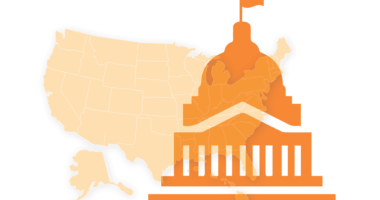This is What Democracy Looks Like: Reflections from an Ed Trust Fellow
During the spring of 2016, I attended my first protest at the University of Tennessee, Knoxville. I was a sophomore, and the Tennessee state legislature had voted to defund our Office of Diversity and Inclusion. The decision, though heartbreaking and frustrating, forced myself and many other students to quickly learn the basics of community organizing. I signed petitions, marched through campus, and addressed administrators during listening sessions. Nothing happened, though. Our elected officials, who felt so far removed from our campus that they could have been in Oregon, sent a message that invalidated my existence as a queer Black woman. Regardless, that experience affirmed my belief in the power of assembly and furthered my skepticism of our country’s governing bodies. Campus organizers taught me that policy decisions should never be made without the community’s voice.
2016 continued to be an increasingly turbulent year on campus. The Office of Diversity and Inclusion was officially defunded after Governor Haslam let the bill pass without veto. The Pride Center was vandalized with homophobic slurs and a queer student was assaulted by three men a few miles from campus. We continued to march and yell my favorite chant, “Show me what democracy looks like/ this is what democracy looks like.” It all came to a crescendo during the days after Donald Trump’s presidential election. Our campuses are simply microcosms of the world around them. President Trump’s racist, homophobic, rhetoric emboldened many of my peers to put their bigotry on full display.
Four years later, I’m working with The Education Trust in Tennessee as a Higher Education Policy Fellow. In my role, I have helped establish our state postsecondary policy agenda and significantly deepened my understanding of Tennessee’s higher education landscape. In December, I’ll release an extension of our national team’s “Segregation Forever?” report examining how accessible Tennessee’s public colleges and universities are for Black and Latino students. As a Tennessee native, it is deeply humbling to do work in my home state focused on supporting the success of students of color and low-income students
However, there have been numerous times throughout the last few months when I’ve wondered if I’m a sellout for trying to create change within a system that has disappointed me time and time again. Many days it’s hard for me to imagine a world in which higher education exists as the great equalizer that it’s so often claimed to be. This summer following the murder of George Floyd, Tennessee colleges and universities released statements promising a commitment to antiracism, equity, and inclusion. They pledged to “root out” systemic racism and white supremacy on campus. Systemic racism is not rooted into our campuses though, it is the very soil from which they emerge.
Often I wonder if I’m thinking or talking about race too much, if advocating specifically for Black, Indigenous, and Latinx students is going to alienate key players in the Tennessee higher education landscape? Perhaps it will, but that’s the hill I’m willing to die on. We’ve seen in Tennessee, that even well-intentioned programs like the Tennessee Promise could be strengthened with a racial equity lens. The program, which hopes to increase enrollment for all state residents through “free college,” serves more middle-class white women than low income and students of color — further proof that all is too broad a word to meet this moment.
A few weeks ago, a Black woman from The Ed Trust team reminded me that I am a subject matter expert in my own lived experience. I then shared the same advice with another young Black woman as we helped her prepare to moderate a panel for our board. Data on the disparities that exist for Black, Indigenous, and Latinx students in college enrollment and completion only proves what I have known since my first protest at UT. As I learn more about education policy, I wonder what impact we could have had if we’d gone above our campus administration and shifted our organizing to target state legislators.
As a Black woman, I don’t have the luxury of being surprised by this country or its citizens. Nothing is more American than over 71 million people voting for a man who explicitly stated time and time again that non-White lives simply do not matter. Then again, nothing is more American than Black youth and Black women turning out in overwhelming numbers to ensure an end to his presidency.
I still don’t have much faith in the system, but I have eternal faith in us. Black, Indigenous, and Latinx students will continue to make their voices heard on campuses across the country and throughout our state. It is now my mission to make sure those voices are also heard in the rooms in which state policy decisions are made. One day our state legislature seats will be filled by a group of people with identities at least as diverse as those in Tennessee. A key step to achieve that goal is ensuring that our campuses not only reflect the diversity in our state, but also equip students to lead on our state’s issues in the years to come. Until then, I’ll continue protesting in the streets and pushing for race conscious policies because for now, this is what democracy looks like.
Kiah Albritton is a Higher Education Policy Fellow with The Education Trust in Tennessee. Kiah earned her Master of Science in higher education from Florida State University in May 2020. As a Tennessee native, Kiah is excited to return home to champion increased access for Black, Latino and low-income students at Tennessee’s public colleges and universities. This December, Kiah will be releasing an extension of Ed Trust’s Segregation Forever? report examining how accessible Tennessee’s public colleges and universities are for Black and Latino students.






